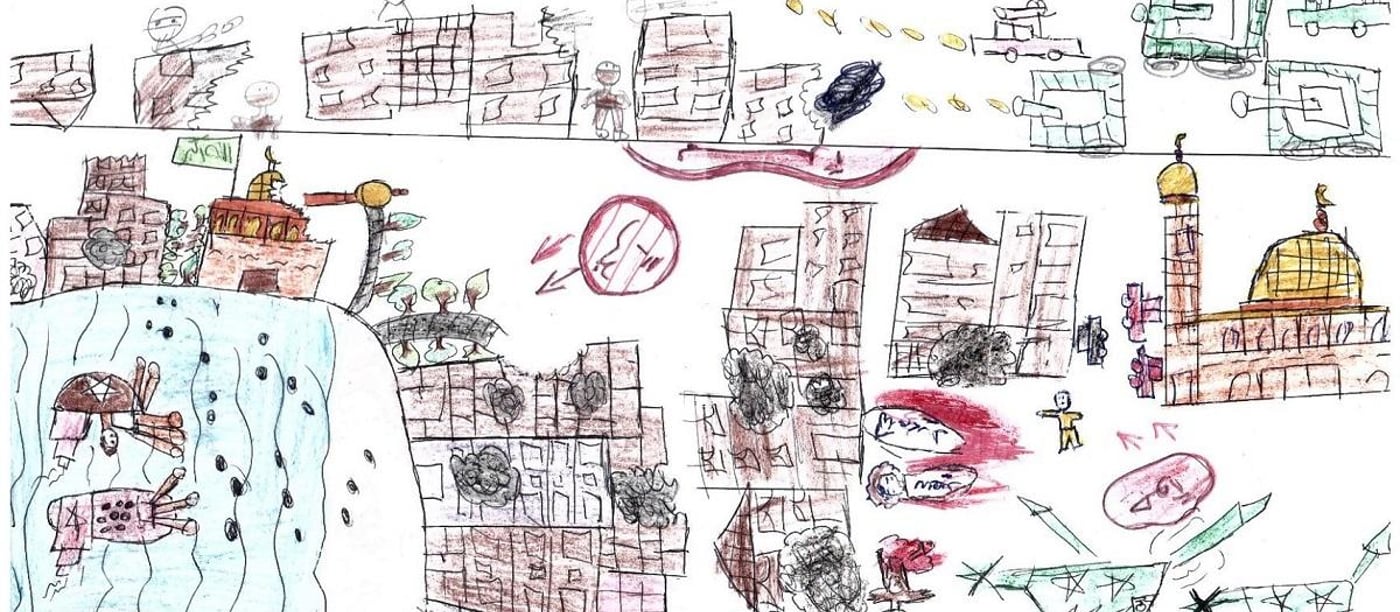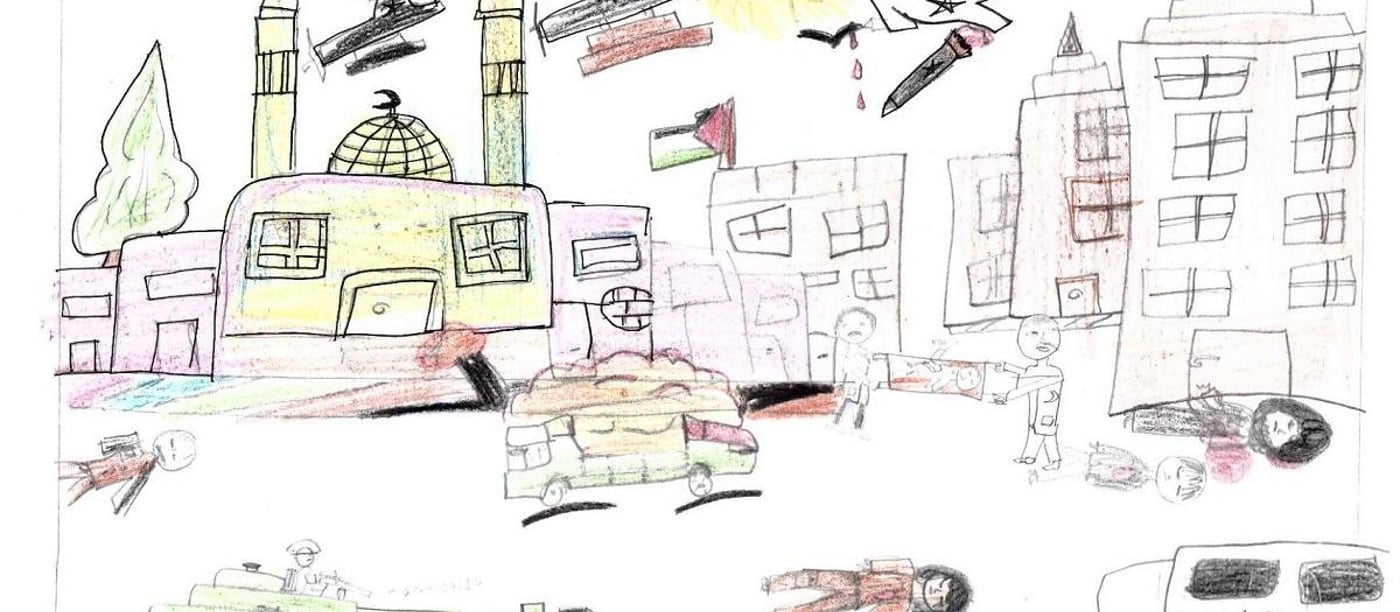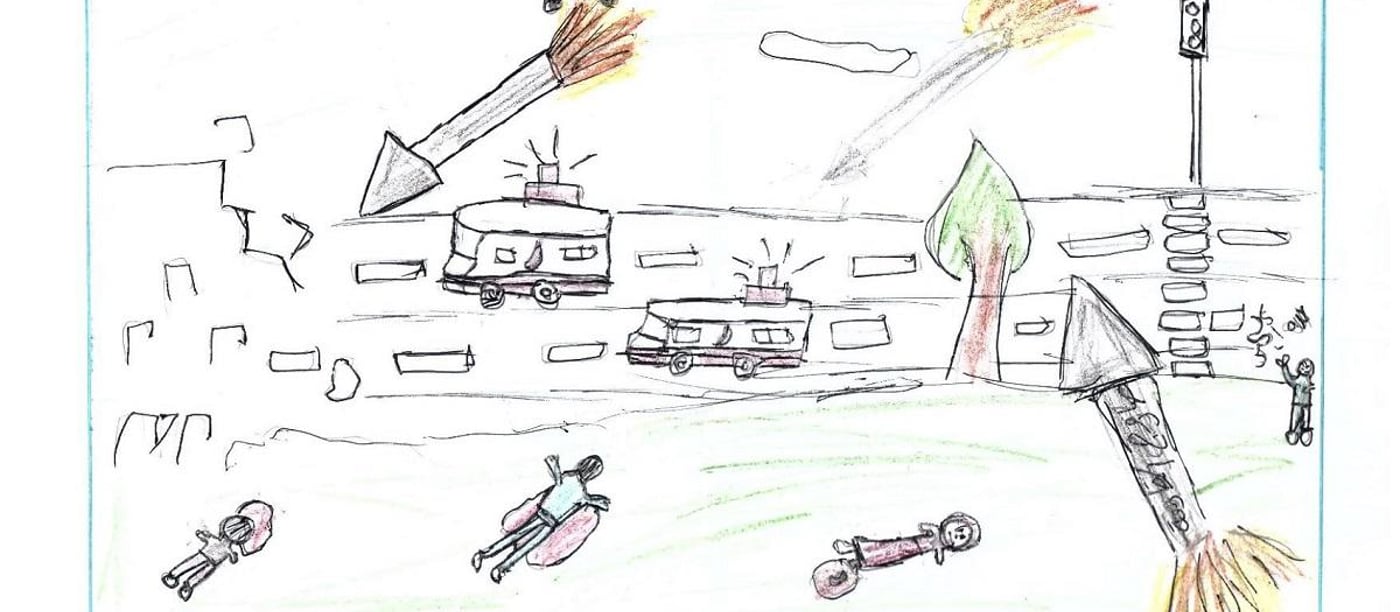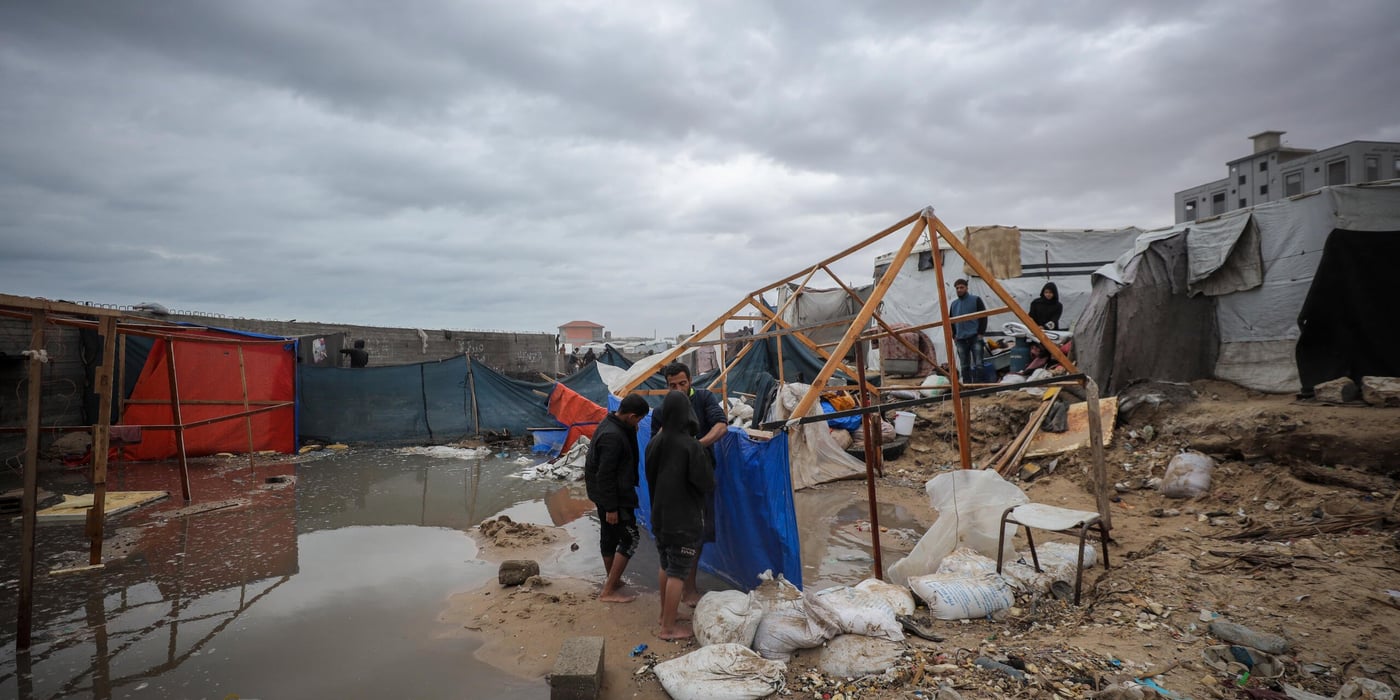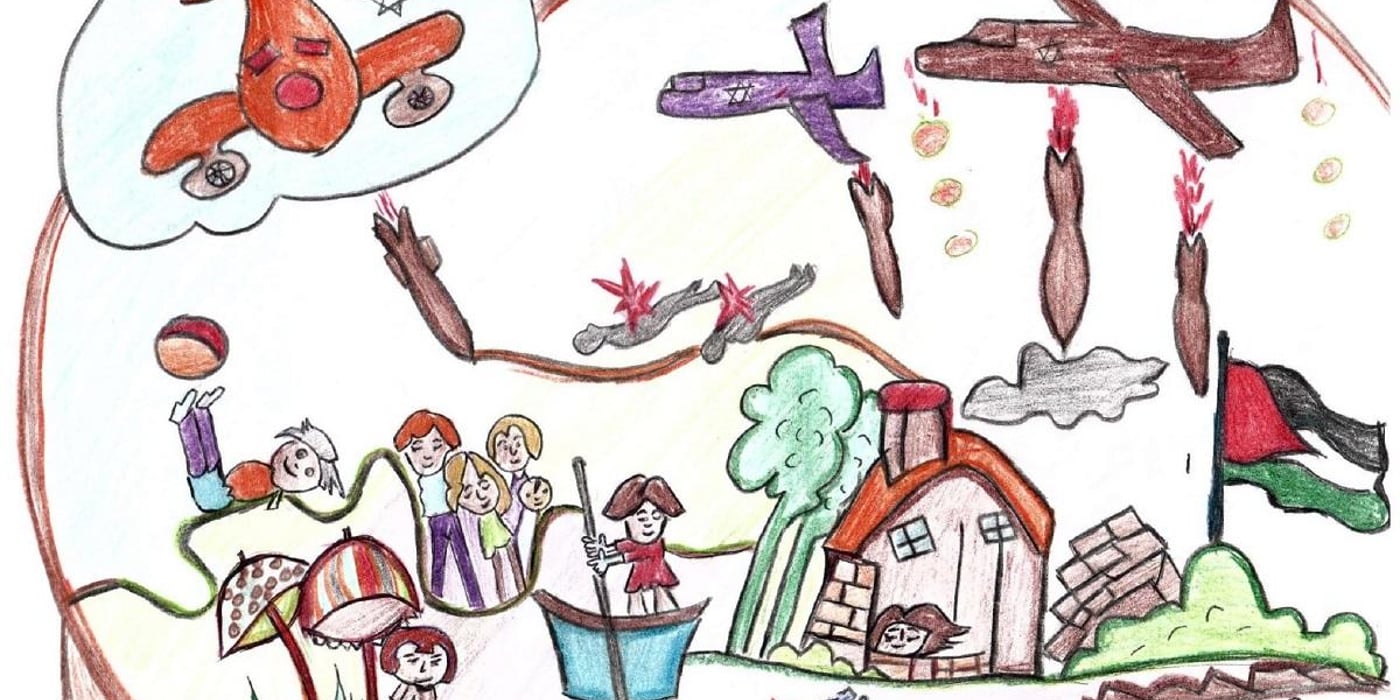
“In my dream, I saw my father on the ground, killed, and woke up screaming. I have had this dream more than once,” says Reham Qudaih. The 14-year old is remarkably poised as she sits by her injured father, Tariq Qudaih, who lays in bed with a bandaged wound. Tariq was participating in the ‘March of Return’ protests at the Israel-Gaza border, when he was shot by Israeli soldiers. “We went there [to the protests] to reclaim our rights that were taken away by the occupation…we do not have electricity, food, treatment or recreation,” explains Reham. Inconsolable since the incident, she constantly worries about the safety of her family and her future.
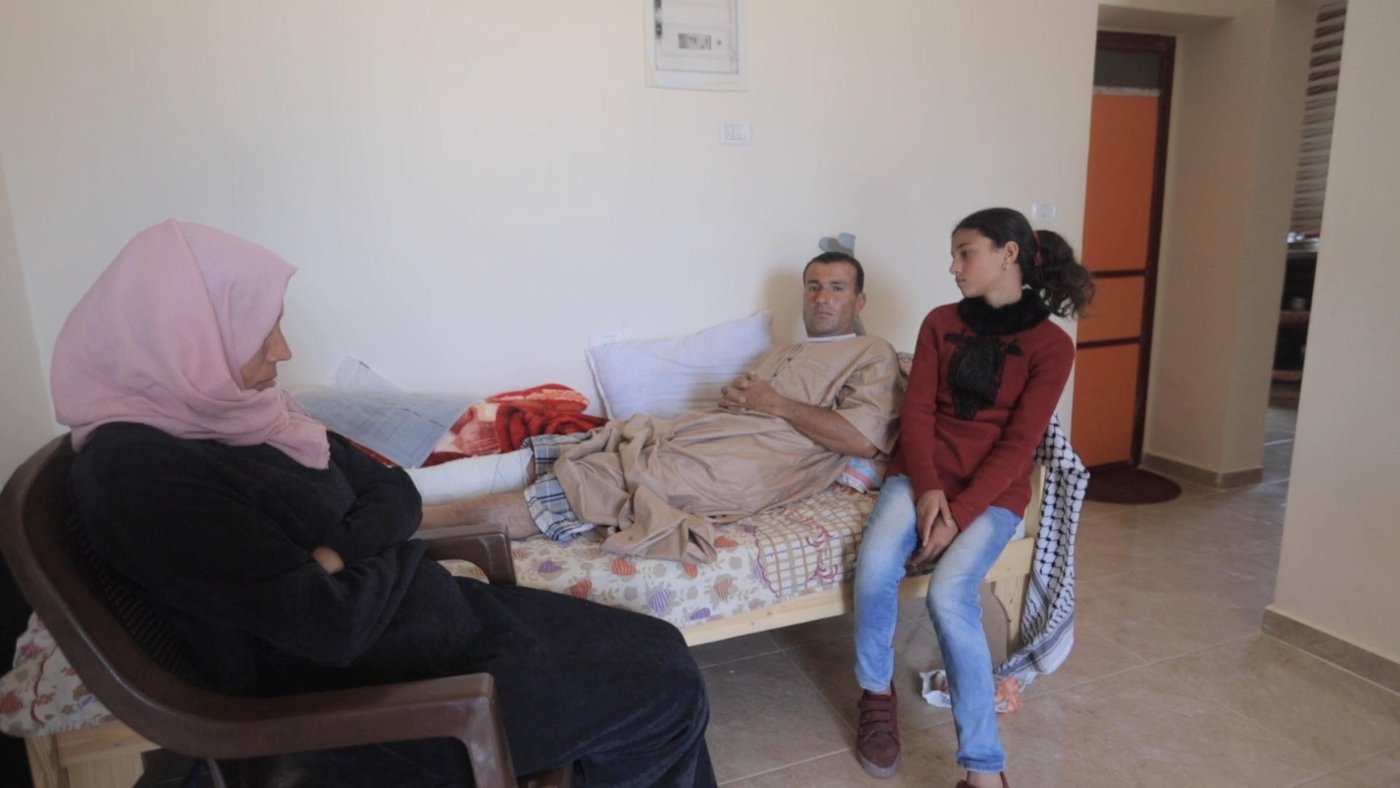
Reham’s articulate explanation of the need for “peaceful protests” in the video interview resonates with the views of many young people in Gaza. But the psychological deterioration that even the most resilient children experience due to the Israeli occupation, blockade and cyclical violence is much more difficult to convey in words.
“I told her to do the calming exercises that she learned at school,” says Reham’s mother, referring to the support that the teenager has received through the Better Learning Programme provided by NRC in collaboration with local schools.
But the latest spate of violence is adding to the already tremendous levels of distress among children like Reham. There has been a marked increase in the number of students experiencing nightmares, due to the violent reactions to protests, according to NRC’s latest findings.
The NRC survey found that the number of children experiencing nightmares has risen to 60 percent over the last month due to the mounting casualties at the border. Thirty-eight Palestinians were killed since the start of protests on March 30, including four children.
Fourteen-year old Mohammad Ayoub was among them. The death of the teenager, who was receiving support through NRC’s programme is a stark reminder of the risks that children in Gaza face without protection of their most basic rights to safety.
His untimely death has been a devastating blow to his family. His parents, whom NRC staff visited, find it difficult to believe that their gregarious boy, the life and soul of family gatherings, is no longer with them.
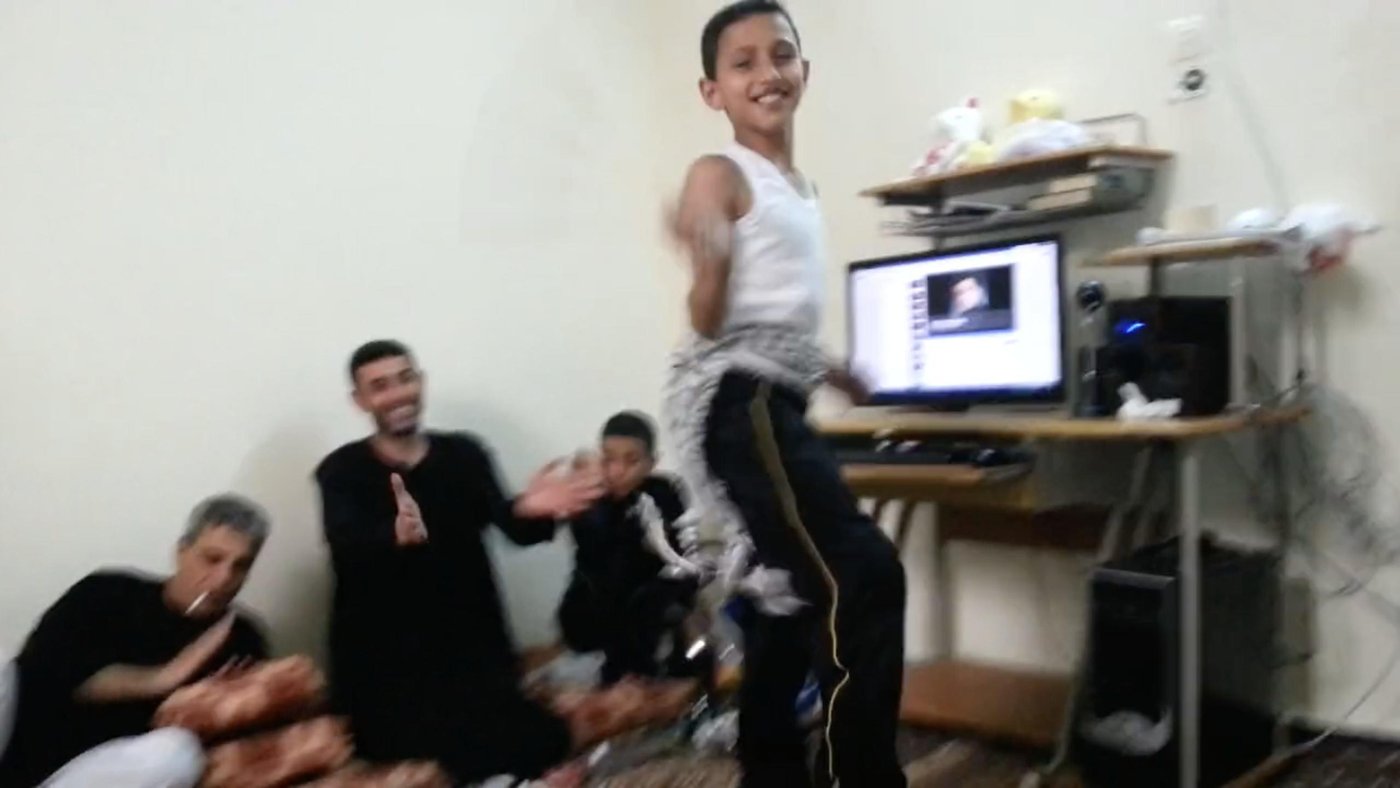
His death has left a strong imprint on the memories of other young members of the family, and the larger community. According to OCHA, the recent violence has triggered “significant mental and psycho-social repercussions among children.” The Protection Cluster partners and school counsellors have so far identified 763 children in need of immediate psychosocial support.
Trapped in the cycle of violence
Many children in Gaza have grown up amid a cycle of conflict and deprivation. For instance, Reham was only 11 years old when the 2014 Gaza hostilities rattled her home and community. The war devastated densely populated civilian areas, claiming over 2,000 lives, including over 500 children.
Consistent support over the past years through NRC support helped Reham recover from the experience of the war and its aftermath. Typical sessions include a range of coping strategies, from helping children recognize and process their reactions to traumatic events, to calming practices and drawing exercises that have a cathartic effect.
But Reham’s remarkable progress has been hampered by the fresh impact of her father sustaining serious injuries during the protests.
“The current crisis also brings back previous trauma and is a direct threat to the children’s mental health and their development,” says Jon-Håkon Schultz, Professor in Educational Psychology at the University of Tromsø in Norway, who has participated in the implementation of the programme in Gaza since 2012.
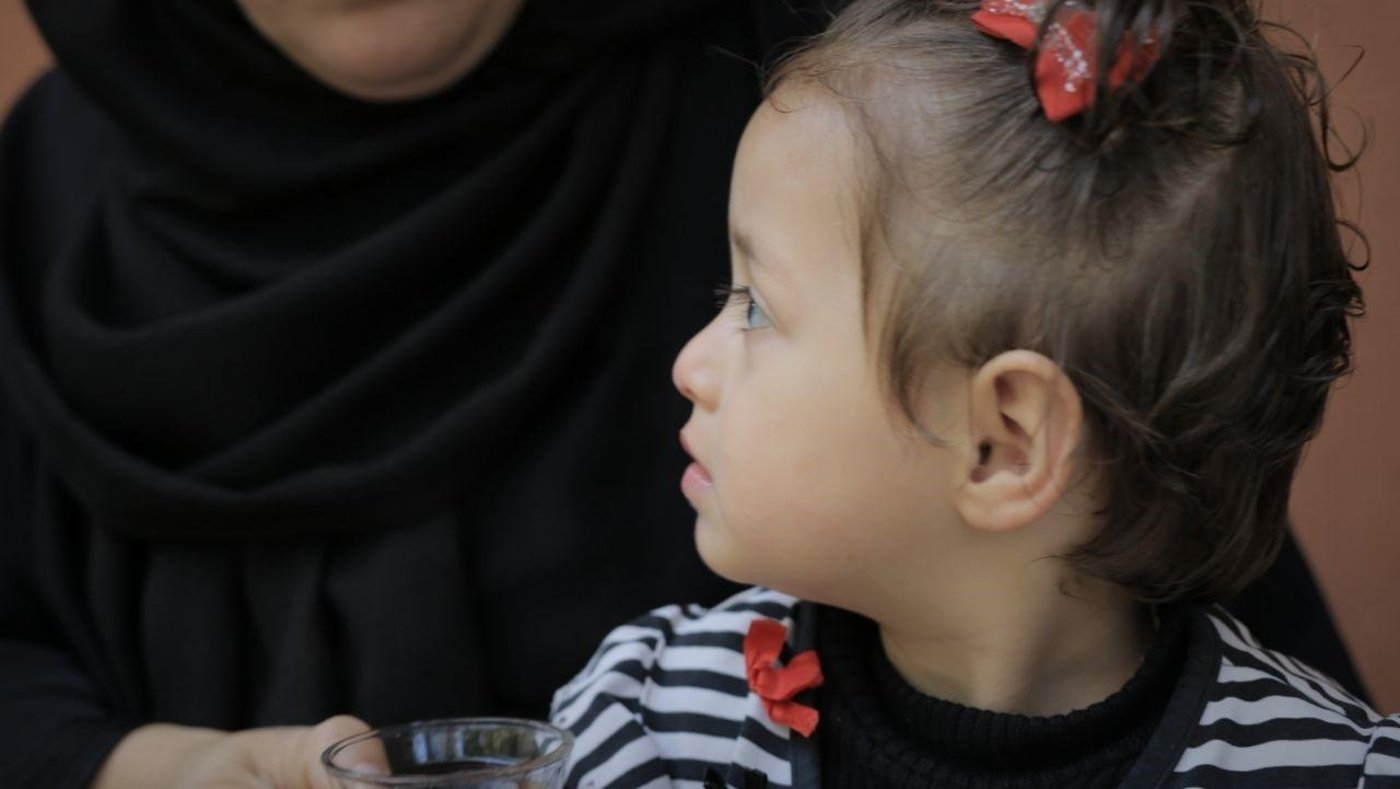
The survey found that much younger children also experience irreconcilable emotions when their parents or family members that they are attached to, ‘disappear’ from their lives.
Unlike Reham, two and a half year old Sima, whose father, Omar Abu Samou, was killed during the recent protests, is too young to fully comprehend the loss of a parent. Yet, she is old enough to feel the intrinsic pain of bereavement and “keeps asking where her father is,” according to Sima’s mother.
The psychological brunt of experiencing direct attacks, and violations against family members and friends can last for months or even years after the episode, according to Schultz. Such extended impact on the psyche of children has been evident in the drawings of students participating in the NRC-led curriculum.
Addressing different types of traumatic stress
To foster long term support and create environments that are conducive to learning, the programme tries to reach not just the children experiencing the negative impacts of emergencies, but also their teachers and parents that are responsible for their wellbeing.
“Our work is carried out on the foundational principles of establishing a sense of safety and stability, facilitating calm, empowering the children to change their situations, mobilising social support and re-establishing hope,” says Inger-Anne Hauge, NRC Palestine Acting Country Director.
Aside from the more obvious cases of psychological distress, counsellors supported by the programme are also trained to help children with psychosocial distress. This can take the form of “impatience in school and general unhappiness,” explains Asa’d Ashour, NRC’s education programme coordinator in Gaza.
Since 2012, NRC has built the capacities of teachers and counsellors to help students who are under performing at school and to clinically intervene in more acute cases, such as children suffering from at least 3 nightmares a week.
But, given that the chronic symptoms of traumatic stress among children result largely from the chronic nature of conflict, many feel trapped between recovery and recurring shocks.
“The children of Gaza are psychosocially distressed, not only by wars, but also by the financial and social situation that their families face. The humanitarian situation is worse than ever, with 84 percent dependent on aid,” adds Hauge.
The need for long-term support
In an atmosphere plagued by conflict, economic deprivation, social isolation and little prospects for a better future, the challenges of an enabling a healthy learning environment are multi-fold. Amid the current conditions of persistent violence and violations of international law, the role of NRC’s psycho-social support initiatives need more international support and multi-year funding.
So far, NRC has provided psychosocial support to 250,000 pupils in Gaza and will continue with the Better Learning Programme – an important contribution that has fostered the personal growth and educational aspirations of young students.



